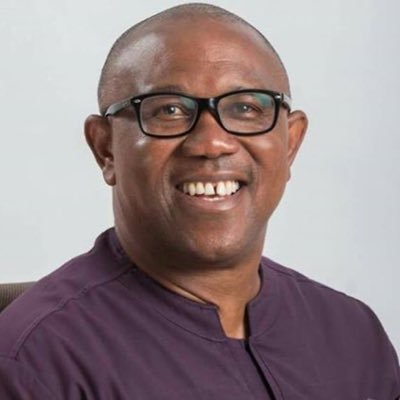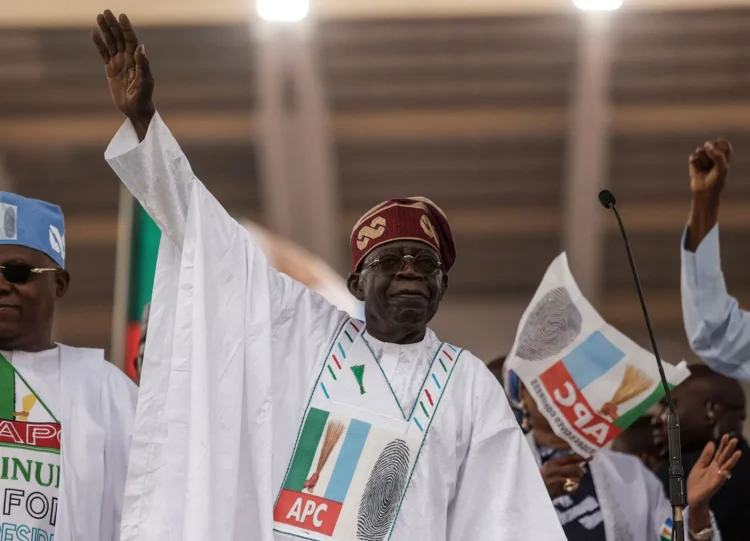By Martin Cole-
The presidential election tribunal upheld the outcome of the 2023 Nigerian elections, affirming the victory of Bola Ahmed Tinubu*pictured) and the All Progressives Congress (APC).
The ruling was expected by many cynics in a country that has long questioned the credibility of Nigeria’s judiciary, accusing its legal system of being susceptible to external influences, such as bribery and threats from powerful political figures.
Haruna Tsammani- the head of the five-member panel of the court who delivered the lead judgement, made the pronouncement after dismissing the petition of Atiku Abubakar of the Peoples Democratic Party (PDP)
Two other members of the panel – Stephen Adah and Misitura Bolaji-Yusuf, have concurred with the reasoning and conclusions in the lead judgement.
The opposition, which had hinted at possible protests if the court upheld Tinubu’s election, rejected the court’s ruling but did not immediately say if they will appeal it. The verdict can be appealed at Nigeria’s Supreme Court within 60 days
In the history of the country, no election result has ever been successfully contested.
The 2023 Nigerian presidential election was one of the most hotly contested in the nation’s history.
Bola Ahmed Tinubu, a former Lagos governor, secured victory with 37 percent of the vote, defeating Atiku Abubakar of the People’s Democratic Party (PDP) and Peter Obi of the Labour Party. However, allegations of electoral malpractice and irregularities soon emerged, prompting the opposition to challenge the results in court.
Atiku Abubakar and Peter Obi sought to invalidate the election results, alleging fraud, violations of electoral law, and questioning Tinubu’s eligibility to run for office. Their case was built on a foundation of mistrust in the electoral process and concerns over the independence of the judiciary.

Disappointed: Peter Obi’s bid to challenge Tinubu failed
Challenges and Discontent
Throughout the legal proceedings, both Abubakar and Obi presented a litany of allegations aimed at discrediting the election results.
Among these allegations were charges of electoral fraud, claims that electoral authorities had violated the law, and assertions that Tinubu did not meet the eligibility criteria for presidential candidacy.
However, these challenges were met with skepticism from various quarters.
While some believed that the claims were credible and warranted a thorough investigation, others questioned the timing and motivations behind the opposition’s legal actions.
The suspicion that legal challenges were politically motivated further complicated the public’s perception of the judiciary’s impartiality.
Crisis of Confidence in the Nigerian Judiciary
The tribunal’s ruling has once again spotlighted the credibility of Nigeria’s judiciary. Over the years, there have been persistent concerns about the susceptibility of Nigerian judges to bribery, intimidation, and influence from powerful political figures.
The perception that justice can be bought or coerced has eroded public trust in the legal system and its ability to deliver fair and impartial verdicts.
In the lead-up to the tribunal’s decision, a prevailing sentiment among many Nigerians was that the outcome was a foregone conclusion.
Doubts lingered about whether the judiciary could act independently and without bias in a case involving such high-stakes political actors.
The fear of a compromised judiciary added to the disillusionment of many Nigerians who already felt disconnected from their political processes.
The Role of INEC and Questions of Transparency
Central to the opposition’s claims was the assertion that the Independent National Electoral Commission (INEC) failed to conduct a free and fair election.
INEC had introduced biometric technology and IReV, a central database for real-time uploading of results, in an effort to enhance transparency.
While INEC acknowledged some “glitches” in the electoral process, it vehemently defended the overall integrity of the election.
Critics, however, contended that these technical problems and delays provided opportunities for vote manipulation. The court’s decision to uphold the election results despite these concerns further fueled suspicions of collusion between political elites and the judiciary.
Economic and Social Realities
Beyond the legal and political implications of the tribunal’s ruling, Nigeria faces pressing economic and social challenges. Since Tinubu assumed office, inflation has worsened, and school fees in the education sector have tripled.
However, it’s crucial to note that these economic challenges are not directly relevant to the legitimacy of his electoral victory. Still, they underscore the urgency of addressing the country’s economic woes.
Tinubu inherited a host of economic problems, including anaemic growth, high unemployment rates, the highest inflation in two decades, a record debt burden, massive oil theft that severely impacted government revenue, and widespread insecurity.
These issues pose significant challenges to his administration, which has pledged to revitalize the economy while maintaining fiscal discipline.
The Road Ahead
While the presidential election tribunal’s ruling may have put to rest immediate legal challenges to Tinubu’s presidency, it has not quelled the broader concerns about Nigeria’s political and judicial systems. As Atiku Abubakar and Peter Obi weigh their options to appeal the decision at the country’s Supreme Court, the nation watches closely.
Nigeria’s democracy, born out of a history of military rule and electoral fraud, remains a work in progress.
The hopes and aspirations of more than 200 million Nigerians rest on the ability of their political leaders and institutions to deliver on the promise of a free, fair, and credible democracy.
As the nation struggling with its economic and political challenges, it remains to be seen whether Bola Ahmed Tinubu’s administration can address the pressing issues facing the country and rebuild public trust in its institutions, starting with the judiciary.
In the end, the tribunal’s ruling, while significant, is just one chapter in Nigeria’s ongoing journey towards a more transparent, accountable, and credible democracy.




